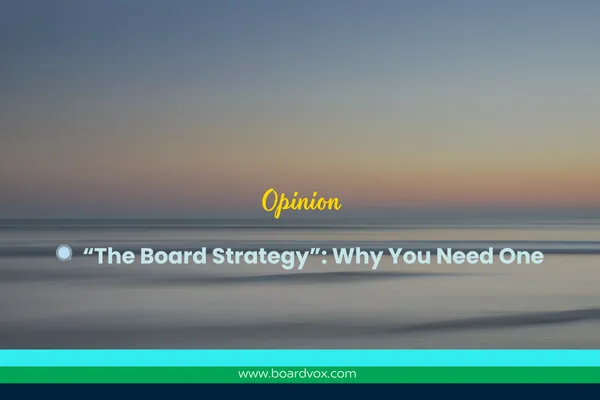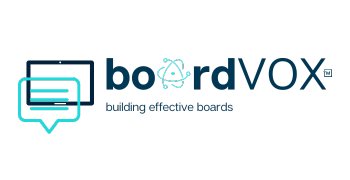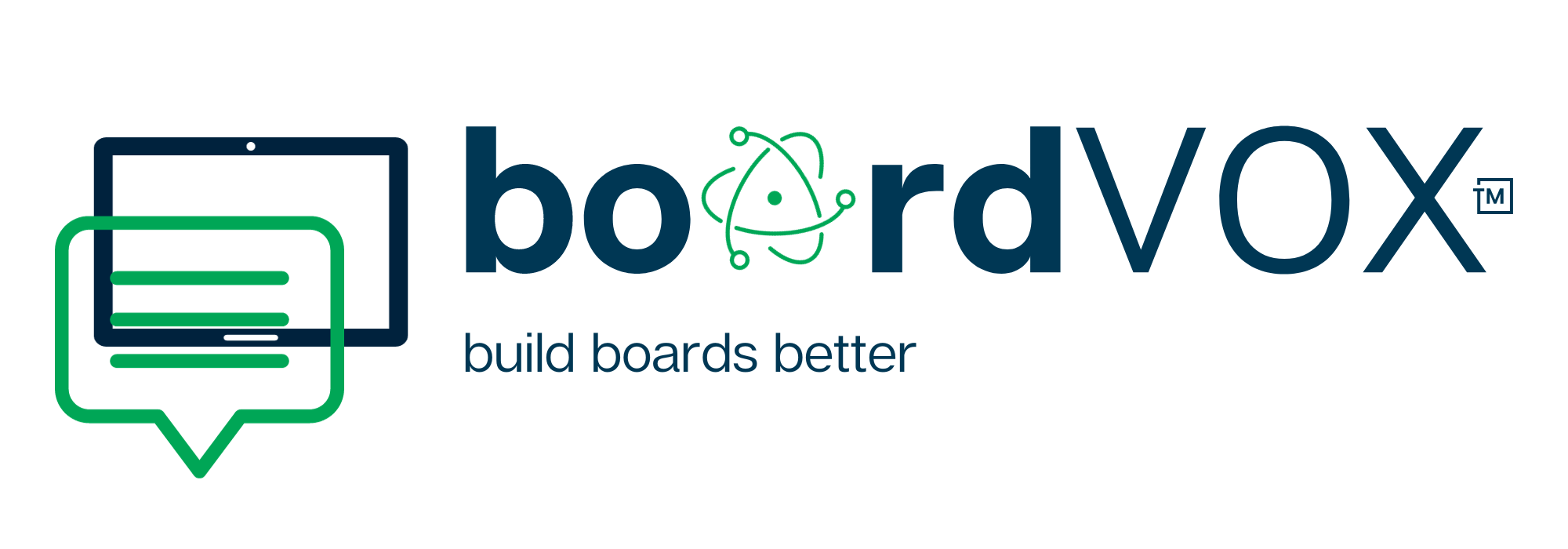Empowering
Good Governance Through You
... one board at a time
How we help
We are the
Voice, Tone and Expression of Good Governance
helping organizations to realize their full potential
by educating, informing, and supporting boards,
directors, and c-suite leaders
with the training, tools and services
to create the best value for today and the future.
How we help
We are the Voice, Tone and Expression of Good Governance
helping organizations to realize their full potential
by educating, informing, and supporting boards, directors, and c-suite leaders
with the training, tools and services to create the best value for today and the future.

Board & Director
Training
We support directors and c-suite leaders to be their best in the boardroom with coaching, workshops & online training.

Board Performance
Tools
We administer board evaluations, board improvement plans and provide technology to support improving board performance.

Board Operating
Support Services
We support boards to become more effective by offering services such as retreat facilitation, policy templates and admin tools.
Let's reimagine the future of board development.
We believe that every director holds the key to unlocking extraordinary boardroom potential. We also believe that the power to unlock sustainable economic growth resides with people just like you right there in the boardroom. Reputational risks are at an all time high. And board service is important work deserving of the best hearts and minds.
That's why we're making governance easier for smarter boards by helping directors embrace their profound responsibility and forge a path of independent thinking, ethical leadership and championing good governance.

RED FLAGS IN THE BOARDROOM CHECKLIST
Add this to your Board Engagement Toolkit to have a handy guide empowering you to:
Identify potential governance risks early
Be vigilant and avoid corporate governance failures.
Uphold the highest standards of transparency and ethics.


🔍 “The Board Strategy”: Why You Need One
“What gets measured gets managed” - Mostly attributed to Peter Drucker
Introduction:
The Board of this era desperately needs its own strategy. It's a failing that is demanding an urgent remedy because much of today's uncertainty in business performance can be addressed with strategy ... not just at the company level, but also where strategy is unlocked in oversight.
"The Board Strategy" promises to be the single most impactful value creating exercise that any board can address. It's an alignment and accountability play. Let me explain.
This is an "Opinion" Post.
Check your board's annual work plan. I am pretty sure that you will not see "The Board's Strategy" as a scheduled activity. And having combed the internet to discover who is doing it, I am going out on a limb to say that if it exists, it's rare. It's missing because it doesn't appear to be an activity that any one has thought about. I stand corrected, of course. But if you think of it and, like me, believe that what gets tracked gets done, then it seems crazy that very few, if any, are working with a Board Strategy.
It's a revelation that struck me out of the blue. And then I found myself wondering why I had never thought about it before. Then, after rushing off to forage for evidence that such an animal exists, I was amazed, but nonetheless delighted, to discover that references to the board and strategy appears to be narrowly focused on the organization's strategy.
Why delighted? Because it feels good when you think that you have an original thought, because we all know they are few and far between.
As simple as it, I am fully expecting that there may be some of you who can step up to disabuse me of my notion that this is original thought. And that may well be the case. But IMHO "The Board's Strategy" is an idea worth sharing. And I am putting it to you first.
The Board's Strategy can be an important and game changing exercise. I am of the opinion that by prioritizing "The Board's Strategy" organizations can unlock a new level of alignment, engagement, and impact in their governance practices. That may be just the game changer required to empower the board to become strategy-centric, thereby unleashing its capability as a competitive advantage.

Following I will make the case for "The Board's Strategy" as a fixture in the practice of every board that wants to win at being effective. 📈
The Case for "The Board's Strategy":
We all appreciate that boards play a crucial role in guiding organizations towards success. I therefore think that we can similarly appreciate that the absence of a dedicated strategic planning process for the board can undermine the board's effectiveness.
Seems logical, right?
The corporate business performance stars are said to abide by a practice of 10% of their executive time (1 week per quarter or 25 days per year) devoted to strategy. When it comes to boards, I would say that their work should be substantially focused on that 10%. And by substantial, I am saying that the board is a strategic operative in the business. It must understand its purpose, the rules of the game, and what it intends to achieve. And this understanding must not only be intuitive, it should specifically be articulated, documented, measured and tracked. After all ..."what gets tracked gets done".
Without a clear roadmap for governance priorities and objectives, boards risk falling short of their oversight responsibilities by failing to add needle-moving value to the organization. Board work becomes less fulfilling and more of a stressor to your personal brand when you start looking around and seeing the many board failures reported with alarming frequency. My thinking is that "The Board Strategy" can fill this important gap by providing a structured framework for aligning the board's efforts with the company's strategic direction, fostering cohesion, and driving collective progress towards shared goals. It can be an important value creator by keeping the board away from majoring in the minor and giving priority to what's most meaningful in keeping the company on track to deliver what it promises. All of this should then logically translate into better business results.
Think on this: maybe, just maybe, "The Board's Strategy" may be the secret sauce that allows boards to conquer the growing advent of shareholder and stakeholder activism.
If you predict it, you can plan to get ahead of it.
Whereas activism, on the face of it, is seen to signal opposition to ceo and board compensation, director independence and succession planning inter-alia, a deeper dive will show that most forms are really grounded in concerns about deteriorating company performance. Your investors want consistent and growing dividends and increases in share prices. That's what they want. Your stakeholders want improved lives and livelihoods. Your job is to look out for the company and steer it away from any measures that impede its progress of fulfilling its purpose and creating value in doing so.
Let me break it down for you.
1. The Importance of Addressing the Gap:
Addressing the gap in board-level strategic planning is essential for enhancing governance effectiveness and ensuring organizational success. When the board's priorities are aligned with the company's strategic objectives, governance practices become more proactive, responsive, and impactful. I think it's time to start seeing the board for what it really is ... a strategic business unit at the highest level of the organization. By treating it as such, and charging it with developing its strategic plan in alignment with the company's strategy, organizations can bridge the crucial divide between execution and governance, attain alignment and unleash the full potential of their boards.
2. Key Components of "The Board Strategy":
The strategic process for organizations is well documented. The Board can be guided through a similar exercise that gets it clear on its commitment to support the organization through the priorities articulated in its strategy. I am thinking that essential elements will include ...
Board Strategy Statement: Just as it's important for a company to know its purpose, mission, vision and strategic priorities, so too is it crucial for a board to consider what it sees as its Strategy Statement. This common understanding will be instrumental in getting all directors on the same page and bringing the c-suite and board secretariat in alignment with the board's plan for impact.
Board Composition and Competencies: Evaluating the mix of skills, experiences, and backgrounds among board members should be an annual exercise to ensure that the board has the right skill mix to provide the oversight required to realize the organization's strategic priorities.
Board Development and Continuous Training: When the Board is deliberate to invest in programs aligned to the needs of the organization, it will reap the benefits of enhancing strategically aligned capabilities of directors. Fostering a culture of continuous learning and development becomes more easily attainable when the board gains practical needs-based on-time training. A training calendar with scheduled training aligned to the needs of the board can be very impactful in purposefully up-skilling directors and c-suite leaders.
Implementation of Key Performance Indicators (KPIs) and Dashboards: The board processes can be further enhanced when the board evolves to hold itself accountable for doing what it says it will do. No more seat warming! Every director supporting in their zone of genius, and focused on the outcomes promised! A process where the Board commits to clear metrics and benchmarks that measure its performance and track its progress will go a far way towards transforming your board from passive to proactive.
3. Benefits of Embracing "The Board Strategy":
It's an alignment and accountability play that will cause your board to become proactive and far more relevant in driving consistently excellent and sustainable business performance. Some things that should flow from your Board Strategy practice include:
Enhanced Governance Effectiveness: Prioritizing "The Board Strategy" enables boards to fulfill their oversight responsibilities more effectively with increasing evidence of adding tangible value to the organization.
Improved Decision-making: A strategic approach to board governance empowers directors to make the best use of its time and to invest themselves in making informed decisions that are aligned with the company's strategic direction and objectives.
Enhanced Stakeholder Confidence: Demonstrating a commitment to board excellence and alignment instills confidence among stakeholders, reinforcing trust and credibility in the organization's leadership and business results.
Conclusion:
In conclusion, "The Board Strategy" is the one missing activity that limits board effectiveness and undermines organizational success. By acknowledging its potential for impactful board service and integrating board-level strategic planning into the broader organizational strategy, boards can unlock the power of excellence in oversight which is a desirable competitive advantage that is worthy of pursuit.
What do you think?
Is this an idea worth sharing?
Is it time for your board to embrace "The Board Strategy" and harness its transformative potential in driving board effectiveness and organizational performance?
Drop me a note and share your perspective on this.
Stay tuned for more enlightening discussions, gripping stories, and actionable insights. And if you haven't already, be sure to subscribe so you never miss a post. Together, we're set to build better boards and build boards better by reshaping the landscape of boardroom leadership, one director at a time.
🌐💼 #strategy #boardstrategy #corporategovernance #goodgovernance #businessresults #boardperformance #boardvox 🤝🔍
Know someone who might be interested in this blog? Please be sure to share it with them.
Also be sure to follow our boardVOX WhatsApp channel here. It is Especially for directors, c-suite leaders, corporate secretaries and all interested in good governance.
YES, YES ...I GET IT
This is exactly what I need right now.
I'm seeking a network of professionals who understand the challenges of the boardroom.
I want to elevate my leadership and have a real impact in the boardroom.
Continuous learning is crucial in our field, and I'm eager to stay ahead.
I'm sold on good governance and excellence.
Connecting with like-minded professionals in the industry is a top priority for me.
I'm committed to being a positive catalyst for change in the organizations I serve.
I believe in the power of good governance to shape the future of business and communities.
I want to learn how to steer governance processes positively and leave a lasting legacy.
It's time for my expertise and leadership to create a powerful impact in the boardroom.
IF THIS SOUNDS LIKE YOU, THEN DIVE RIGHT IN
Join Our Movement As
A Partner In Good Governance.
We're here to help you avoid the SHOULD'VEs and COULD'VEs in fulfilling your responsibilities as a director.
© 2024 A. Cecile Watson | boardVOX, All Rights Reserved


